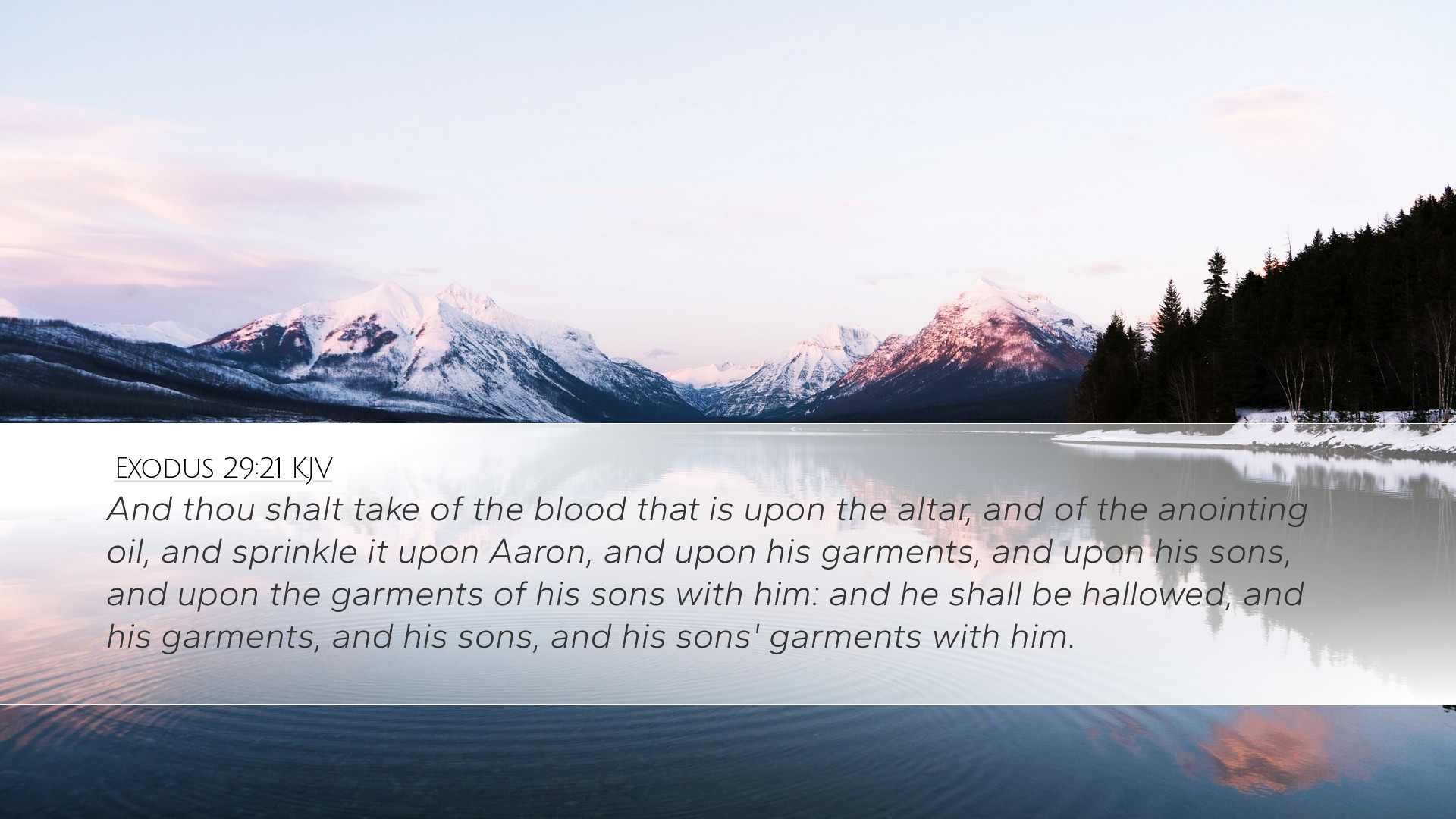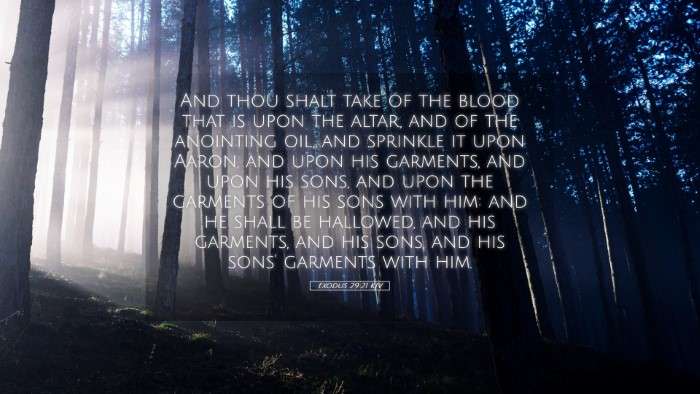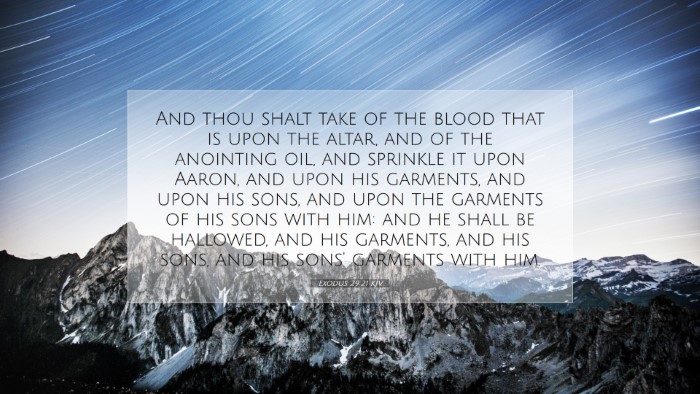Exodus 29:21 - Commentary Overview
Exodus 29:21 states:
"And you shall take some of the blood that is on the altar, and some of the anointing oil, and sprinkle it on Aaron and on his garments, and on his sons and on the garments of his sons with him. And he and his garments shall be hallowed, and his sons and his sons' garments with him."
Contextual Understanding
This verse is situated within the larger context of the ordination of Aaron and his sons as priests in Israel. It highlights the ceremonial nature of their consecration, which involved elements of both sacrifice and anointing.
The Significance of Blood and Anointing Oil
The combination of blood and anointing oil carries profound theological implications. The blood signifies atonement and purification, while the anointing oil symbolizes the presence and empowerment of the Holy Spirit.
-
Matthew Henry:
Henry emphasizes that the use of blood in consecration signifies the necessity of atonement for any service rendered to God. The sprinkling of blood emphasizes the seriousness of entering into covenant relationship with God.
-
Albert Barnes:
Barnes notes that the act of sprinkling was not merely ritualistic but was intended to signify sanctification by divine authority, thus setting Aaron and his sons apart for holy duties.
-
Adam Clarke:
Clarke elaborates on the symbolism of anointing oil as a means to convey the idea of being chosen and empowered for divine service. Clarke highlights that it represents the Holy Spirit’s work in setting individuals apart for God’s purposes.
The Role of Aaron and His Sons
Aaron, as the high priest, plays a crucial role in mediating between God and the people. His consecration was not only for himself and his immediate family but also establishes a priestly lineage for the nation of Israel.
-
Matthew Henry:
Henry points out that the priesthood of Aaron was pivotal in the spiritual life of Israel, providing a means by which the community could approach God through sacrifices and worship.
-
Albert Barnes:
Barnes emphasizes the familial aspect of the priestly role, noting that just as Aaron is sanctified, so too are his sons, stressing the continuity and succession in priestly responsibilities.
-
Adam Clarke:
Clarke mentions that the garments of Aaron and his sons carry symbolism of righteousness and the duties assigned to the priests, representing their role in mediating God’s grace to the people.
The Theology of Holiness
From this verse, we can derive important truths about holiness and the necessity of purification. The act of consecration through blood and oil teaches that those who serve in holy capacities must themselves be made holy.
-
Matthew Henry:
Henry affirms that holiness is not merely an external appearance but a transformation that reflects one’s relationship with God, initiated by divine grace.
-
Albert Barnes:
Barnes discusses the importance of a holy life in leadership. He insists that true leadership in the spiritual realm demands personal sanctification, as leaders influence the faith community.
-
Adam Clarke:
Clarke underscores that holiness affects every aspect of a believer’s life and points out that the garments symbolize the purity that should accompany the service of the Lord.
Practical Applications for Today
As we reflect on Exodus 29:21, several applications can be drawn for today’s church leadership and ministry practice:
-
Understanding of Atonement:
Pastors and church leaders must recognize the foundational truth of atonement through Christ as they stand before God and serve His people.
-
Calling and Empowerment:
Those called to ministry should seek the empowerment of the Holy Spirit, just as Aaron and his sons were anointed for their tasks.
-
Emphasis on Holiness:
The church must prioritize holiness, not as a legalistic measure, but as a joyful response to God’s grace and as a necessary aspect of fruitful ministry.
Conclusion
Exodus 29:21 is a rich text that provides insights into the nature of God’s calling, the significance of sacrificial rituals, and the importance of holiness in serving God. Commentaries by Matthew Henry, Albert Barnes, and Adam Clarke offer depth to these themes, inviting pastors, theologians, and students to delve into their implications for both ancient Israel and the contemporary church.


